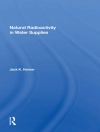The Arctic’s environment, economics and politics are changing rapidly, and the conflicting interests among stakeholders mean that it lacks sustainable political and military cooperation. States bordering the Arctic — Russia, Canada, the United States, and the Nordic countries — as well as those further afield — such as China and Japan — all recognize the economic benefits of the region, but struggle to address the security challenges and the potential environmental impact of activities conducted there. This book provides a snapshot of the subject areas connecting transport, environmental security, resource development, and military security, featuring new material written after Russia’s second invasion of Ukraine.
Contents:
- About the Editors
- About the Contributors
- Introduction (Niklas Swanström and Michael Goodsite)
- Security Dynamics In, Through, and Over the Arctic ‘Region’ (Andreas Østhagen and P Whitney Lackenbauer)
- ‘Comprehensive Security’ — A Prerequisite for Sustainable Development (Lassi Heininen)
- Increased Maritime Routes in the Arctic and Their Security Impact (Niklas Swanström)
- Russia in the New Arctic (Tomas Ries)
- Nordic States, Arctic Council, and Asian Powers: Polar, Powers, and Politics (Jagannath P Panda)
- Arctic Shipping: Economic and Environmental Assessments (Dimitrios Theocharis)
- Shipping in the Arctic — Is Climate Change a Game Changer? (Frédéric Lasserre)
- Benefits and Opportunities of Zero-Emission Shipping in the Arctic (Mauricio Latapí, Lára Jóhannsdóttir, and Brynhildur Davíðsdóttir)
- A Structured Analysis of Sustainability in Arctic Transport Studies (Olivier Faury, Pierre Cariou, Roberto Rivas-Hermann, and Patrick Rigot-Muller)
- Analysis of Supplier Development Strategies for Climate Change Mitigation and Adaptation (Aditi, Devika Kannan, and Kannan Govindan)
- The Future of Shipping Minerals from the Arctic (Michael Goodsite)
- Conclusion (Niklas Swanström and Michael Goodsite)
- Appendix: Arctic Maps
- Index
Readership: Arctic scholars and scholars of regional security and climate change global policy. Also useful for Asian scholars interested in the Arctic.
Key Features:
- Global viewpoints
- The book is State-of-the art with the most recent analysis on shipping, security, and natural resources available with an interdisciplinary approach connecting economic, security, environment and engineering with a number of chapters including impacts of the Russian invasion of Ukraine to their subject matter
- The maps which depict various scenarios reflect state of the art research
- Contributors are well-established as well as newer scholars with respect to studies in the Arctic
- Unique maps and figures from the authors












